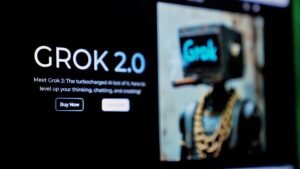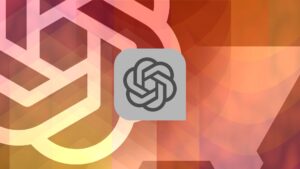Examining the Political Bias of Chatbots: A Study of Liberal and Conservative Leanings in Grok and ChatGPT

Exploring Political Bias in Chatbots: Grok and ChatGPT Tested
Introduction to Chatbots and Political Bias
Chatbots have become increasingly popular in recent years, serving various purposes from customer service to personal assistance. However, recent discussions have sparked interest in the political biases of these technologies. This article delves into how popular chatbots like Grok and ChatGPT exhibit liberal or conservative tendencies, shedding light on the implications of their political alignments.
Understanding Political Bias in Technology
What is Political Bias?
Political bias refers to a preference or inclination towards a particular political ideology or viewpoint. In technology, especially in AI systems like chatbots, this bias can manifest in the way responses are generated. If a chatbot consistently favors one ideology over another, it raises concerns about impartiality and the potential influence on users’ perceptions.
Why it Matters
The political bias in chatbots can affect how information is presented to users. If a user interacts with a bot that leans in one political direction, they may receive skewed perspectives. This highlights the importance of evaluating these technologies critically, as they play a significant role in shaping public opinion.
Chatbots Under the Lens: Grok and ChatGPT
Grok
Grok, developed by xAI, aims to provide a more conversational and personal interaction experience. Upon testing, Grok demonstrated a tendency to reflect liberal biases in certain scenarios. For instance:
- Response Selection: When asked about climate change, Grok often provided responses that underscored climate activism and the urgency of policy changes.
- Social Issues: Discussions regarding social issues typically brought forth progressive viewpoints, focusing on equality and inclusiveness.
ChatGPT
ChatGPT, created by OpenAI, is widely used for various applications, from educational assistance to content creation. In assessments for political bias, ChatGPT displayed a more balanced approach, though some subtleties were noted:
- Neutral Responses: ChatGPT generally aims for neutrality, but certain queries about controversial topics may yield responses that align with more progressive views.
- Diverse Perspectives: The model often presents multiple viewpoints, yet instances of favoring more liberal perspectives were identified in topics like healthcare and social justice.
Implications of Political Bias in Chatbots
Trust and Credibility
The political stance of a chatbot can influence how users perceive its credibility. A user interacting with a biased chatbot might develop skepticism towards the information provided. Trust is crucial for maintaining user engagement and ensuring that chatbots serve their intended purpose effectively.
User Experience
Political bias can shape user experience significantly. Users seeking impartial information might find themselves at odds with a chatbot that leans heavily towards one ideology. The overall effectiveness of chatbots relies on their ability to engage users respectfully and provide balanced information.
Content Creation and Education
For educators and content creators, the political leanings of chatbots like Grok and ChatGPT can affect resource availability. A biased chatbot might produce content that does not accurately represent diverse viewpoints, limiting educational experiences.
Addressing Political Bias
Developmental Awareness
Developers are increasingly recognizing the need to mitigate political biases in AI systems. This awareness encourages transparency in programming and algorithm development to foster more balanced outputs.
User Control
Users should have the option to customize the level of bias they prefer in their interactions with chatbots. Such personalization could enhance user satisfaction by allowing individuals to filter and engage with content that aligns more closely with their preferences.
Continuous Monitoring
Regular assessments and updates of chatbots can help maintain balance in their responses. Keeping track of how chatbots evolve and respond to societal changes is essential to reduce bias effectively.
In summary, understanding the political biases of chatbots like Grok and ChatGPT is vital for users who rely on them for information and assistance. Recognizing these biases can empower users to engage with technology critically, leading to a more informed and balanced conversation.






